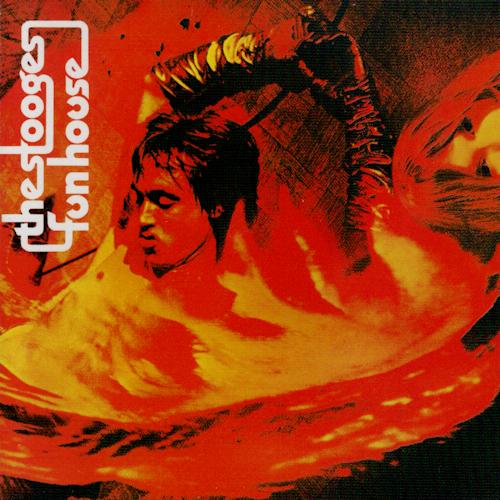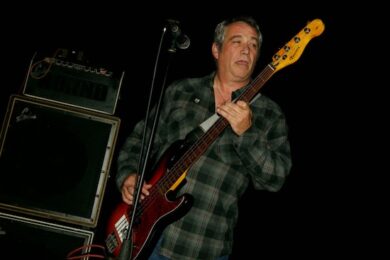1. The StoogesFun House

I heard it first when I was only like, 16. And I found out about it because of a writer by the name of Lester Bangs… oh, and Richard Meltzer. They wrote in a music magazine called Creem. I got to meet Meltzer actually. I got to be friends with him, which was amazing. I mean, this guy wrote lyrics for the Blue Öyster Cult! Anyway… in 1973 this was before zines, and at that time most of the music magazines in the US were lame, but Creem had this vibe about it that somehow spoke to us. I mean, not 100%, but definitely it felt like the writers were speaking to us, not down to us. The writers… I dunno, they just didn’t seem like shields for the record companies like in other mags [Bangs had been fired from Rolling Stone for "disrespecting musicians"]. You trusted them, y’know? Enough at least to check out the records they were telling us about. So… I took a chance and bought Fun House.
I couldn’t fuckin’ believe it, man. To us, we didn’t think it was rock & roll they were playing, we thought they’d invented a whole new music! I mean, this was some trippy shit. Like, I thought the first three songs were the same song played three different ways. I thought the bass was just a fourth guitar. When D’s mom makes us into a band and puts me on bass (I bought my first bass for $100), I had to learn bass from Fun House, Creedence and the brothers doing R&B, or like Trevor Bolder [of Bowie’s Spider From Mars and Uriah Heep], because you could really hear the bass on British rock & roll – most US rock & roll buried the bass in the mix. But yeah, Fun House was a freak out moment for us. It was the same story when we first heard Strictly Personal [Captain Beefheart’s second album].
[At this point Mike digresses for several minutes; combines the story of moving to the Pedro projects from Virginia at age 10 to the tale of how he came to learn the meaning of the word "ponce" after a gig with J Mascis, via a short history of Francis Drake – "sorry man, D. Boon got me way into history".]
So you gotta understand Pedro at the time and the culture me and D. Boon were in. Me and D.Boon were kinda outsiders: D. Boon was a heavier man and I was a… goofier man [laughs]. And this was before we’d heard about "the parallel universe" [Mike’s term for punk]. Bangs wasn’t covering British punk. And in Pedro there was no jazz or anything. Just, like, country. I mean, D. Boon’s dad was way into Buck Owens – I remember we would tie firecrackers to his Owens records and throw them like frisbees, blow them up. We had no idea what punk sounded like, just what it looked like, from photos. And when we first heard it, it was totally different to what we expected. Then we realised, "Oh… The Stooges were doing this before – it’s the same thing! Musically, we were so ignorant back then (you’ve seen [Minutemen documentary] We Jam Econo, right?), so we had no way of connecting all these records we’d listened to when we were teenagers until punk came along! Also, you gotta understand that SoCal is basically 150 towns (London has the same vibe), so nobody knew each other. No one in the Hollywood scene knew Pedro, 30 miles north. I spray-painted "PEDRO" on my guitar, people thought that was my name! But the one thing we all had in common, the lingua franca, was The Stooges’ Fun House. It was really important to our scene.
So you can imagine how it felt when I was in Tallahassee Florida with my second band [Cowhouse] and Iggy phones me up! And he says "Ronnie says you’re the man!" I couldn’t fuckin’ believe it, man.


